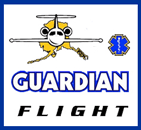 By ANNA BADKHEN San Francisco Chronicle December 27, 2005
A spiderweb of cracks scars the right rear side window, where a fragment of an exploding car bomb hit the truck July 6. A fissure runs through the dusty armored windshield on the passenger's side where shrapnel from a roadside bomb struck Nov. 4. On Dec. 15, the day Iraqis voted for the first full-time parliament since Saddam Hussein's regime fell, someone fired several shotgun rounds, and a spray of fingernail-size dents now pockmarks the glass.
"This truck is pretty banged up," said Stephens, 25, of Oneida, Tenn., who, along with the 900 weary soldiers of the 2-7 Infantry Battalion of the 1st Brigade, 3rd Infantry Division, is heading home after a year in the scarred, hostile Sunni triangle. They came here expecting a battlefield. Instead they found themselves in a different kind of war, in which the enemy was often gone long before his roadside bomb went off, and there was no way to avenge the resulting deaths of their comrades. A war in which it was impossible to tell insurgents from friendly Iraqis, and any car in the chaotic traffic might have been packed with explosives. "It's tough to recover over here from losing a soldier because you can't go out after the insurgent who killed that soldier," said Capt. Matt Temple, 32, the battalion chaplain from Lexington, N.C. As they prepare to depart after a 12-month tour of duty in one of the most dangerous parts of the country, the soldiers of the 2-7 also take away a sense of pride about what they have tried to build. "At times, this is one of the most fulfilling things I've ever done," said Capt. Jason Freidt, 31, of Temecula (Riverside County), whose company helped open a 60-bed hospital in Auja, a village of about 5,000 people south of Tikrit. But violence and loss shadow their assessments. Nine members of the 2-7 were killed during their tour of duty. Lt. Col. Todd Wood, the battalion's commander, doesn't know how many, if any, of the perpetrators have been caught. He does know that some are still out there. "It raises questions, you know: 'Why are we here? Why are we doing this?' " Temple said. "That really hits at the foundation of your sense of purpose." After walking through the scenes of devastation wrought by 26 separate car bombings, the soldiers of the 2-7 became inured to the shock. Drew Madison, 20, from Jasper, Ala., operates an M240 Bravo machine gun in the turret of one of the battalion's humvees. Six months ago, he said the bloody horrors haunted him and gave him nightmares. Asked more recently to sum up his year in Iraq, he replied, laconically: "Just another year. A couple of VBIEDs, a bunch of IEDs." A VBIED, the military acronym for a vehicle-borne improvised explosive device, is a car bomb; an IED is a roadside bomb. Between them, these weapons have killed hundreds of American soldiers in the past two years - including nine from the 2-7 this year - and thousands of Iraqis. The soldiers of the 2-7 also learned to grieve the deaths of their comrades privately. "A buddy of mine," is all Stephens would say about the pewter bracelet he wears engraved with the name of his friend Spc. Adam Harting, a gunner killed by a roadside bomb in Samarra on July 25. The soldiers did more than fight. They helped reconstruct police stations and schools; they ate grilled lamb with tribal sheikhs and attended their children's weddings; they gave sweets and school supplies to Iraqi kids, helped provide security for elections, and even tried to resolve decadeslong feuds between families. "Looking back on it, seeing where everybody was at the beginning and where they're now, it's a big leap," said Capt. Freidt of Charlie Company. "It makes me feel good because it means I and my guys did our job." But when they think about the towns and villages they have passed through and all the roads they have driven, it is mostly in terms of the violence they have witnessed. "The sense of satisfaction - you don't really get it," said Lt. Andrew Fleming, 24, from Boston, whose platoon patrols a 12-mile stretch of Highway 1, Iraq's main north-to-south thoroughfare, to prevent insurgents from planting bombs. "But when you see convoys go up and down the highway, convoys that don't get hit - that's what I tell my guys we're here for." Using colored markers, Stephens charts his version of the history of the 2-7's deployment in neat handwriting on the armored windshield of his humvee, which he has christened Old Betsy. "Green KIA VBIED," reads one inscription, in black marker, followed by coordinates for the car bomb that had taken an Iraqi soldier's life. "Pos. IED w/bag pos. 155," reads another, in orange, marking the spot where insurgents had placed a roadside bomb fashioned from a 155mm round. "B. bag w/wires," says the third. "Explosion." Other soldiers think of the houses they have raided, rummaging through the belongings of the sleepy residents they abruptly woke up. "We've raided that place," remarked Sgt. Darrell Foster, 25, of Buckhannon, W.Va., pointing out, to Stephens, a sprawling estate on the sandstone cliffs of Qadessiya, a village about 90 miles north of Baghdad. "Raided that compound next to it, too. It had that female who spoke real good English, remember?" From such intensely shared experiences, the soldiers of the 2-7 formed tight bonds. "In a way I'll kind of miss it, being with my 14 guys for all this time," said Fleming, a platoon leader at the 2-7's Death Rider Company. "The stuff they say in the movies about the guy to your left and your right, I've always thought it kind of corny. But now I think it's true."
Submit A Letter to the Editor
|
||


